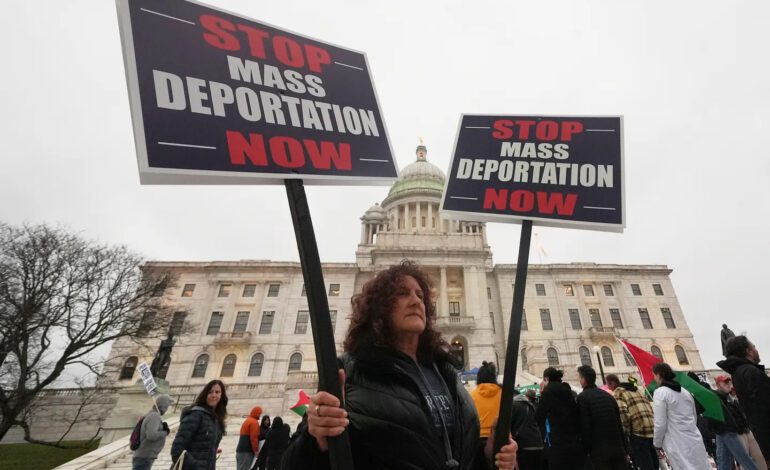WASHINGTON, D.C. — The U.S. Supreme Court has overturned a lower court order that had required the federal government to give migrants facing deportation to so-called “third countries” a meaningful opportunity to explain whether they risk being subjected to torture in their new destination.
The ruling by the nation’s highest judicial authority clears the way for President Trump’s administration to resume deporting migrants to countries other than their homelands without granting them a chance to present evidence of the harm they could face. The decision marks yet another victory for Trump in his aggressive push for mass deportations.
The original injunction had been issued on April 18 by federal judge Brian Murphy in Boston, following an increase in third-country deportations by the Department of Homeland Security. The injunction was part of a lawsuit filed by immigrant rights groups on behalf of migrants seeking to block their removal without proper notice or an opportunity to explain the dangers they might face.
On May 21, Judge Murphy found that the Trump administration had violated his order by attempting to deport a group of migrants to politically unstable South Sudan — a country the U.S. State Department warns against traveling to due to crime, kidnapping and armed conflict. Murphy’s intervention had compelled the government to temporarily hold the migrants at a U.S. military base in Djibouti.
Following the Supreme Court’s decision, the Trump administration can now swiftly resume deportations to third countries, including South Sudan. Affected migrants may still submit individual claims, but broad protections have been significantly weakened.
“The consequences of the Supreme Court’s ruling will be devastating,” said Trina Realmuto, executive director of the National Immigration Litigation Alliance, one of the groups that brought the legal challenge. “It strips away critical due process protections that shielded deported migrants from torture and death.”
Tricia McLaughlin, a spokesperson for the Department of Homeland Security, hailed the ruling as “a major victory for public safety.” She also took a swipe at the Biden administration, claiming its immigration policies had allowed millions of undocumented migrants into the country.
“DHS can now exercise its lawful authority to remove illegal migrants to any country willing to accept them,” McLaughlin stated. “Let the deportation flights take off.”
The Supreme Court’s three liberal justices opposed the decision. Justice Sonia Sotomayor, in a dissenting opinion, wrote that the Court intervened “to grant the government emergency relief from an order it has repeatedly defied.” She accused the Court of “rewarding chaos” by allowing the Trump administration to disregard migrants’ due process rights.
Sotomayor argued that for the conservative majority, the likelihood that “thousands will suffer violence in distant lands” is less important than the slim possibility that a district judge overstepped his authority.”
Under U.S. immigration law, the government may deport individuals to a third country only if it is “impracticable, inadvisable or impossible” to send them to either their home country or a previously designated alternative, according to the plaintiffs’ attorneys.
The Supreme Court’s order has major implications:
-
The policy shift reinstates expedited deportations to third countries, even those deemed unsafe.
-
Individual deportation cases are rapidly evolving as legal battles continue.
-
The Trump administration is escalating challenges against judicial authority at both federal and state levels.






Leave a Reply